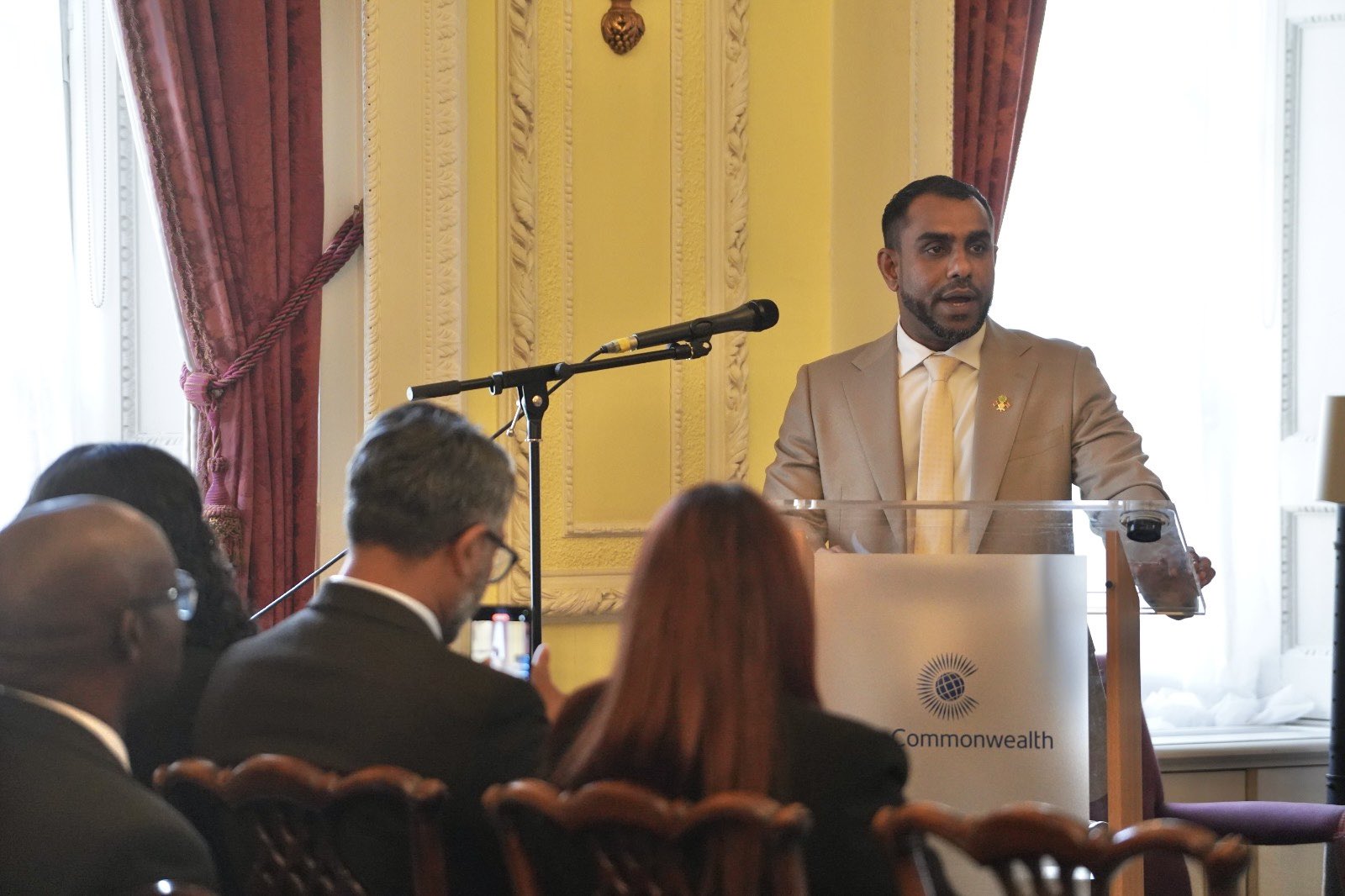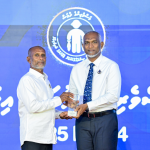LONDON — In a keynote address at the Commonwealth meeting on Sustainable and Regenerative Tourism, Minister of Tourism Ibrahim Faisal underscored the Maldives’ commitment to advancing eco-friendly tourism practices that not only preserve but actively restore natural ecosystems. The conference, held in London, convened leaders from across the Commonwealth to address tourism’s impact on environmental and community well-being.
In his remarks, Minister Faisal described tourism as a double-edged sword for the Maldives, highlighting both its economic benefits and environmental costs. “Protecting our paradise is not just a goal; it’s a necessity for the well-being of future generations,” he told delegates, noting that President Dr. Muizzu’s administration has already implemented measures to reduce carbon emissions, enhance waste management, and support marine conservation.
The government is pushing sustainability by encouraging resorts to adopt solar power and stricter Environmental Impact Assessments (EIAs). Minister Faisal emphasized the importance of community-driven initiatives, explaining that local councils are being integrated into tourism planning to ensure that development decisions benefit local communities.
Minister Faisal also advocated for a shift towards “regenerative tourism,” which focuses on restoration rather than just preservation.
“In the Maldives, we’re investing in coral reef restoration and community-led conservation,” he said, calling on fellow Commonwealth nations to collaborate on this evolving approach.
Accompanied by High Commissioner Iruthisham Adam and a high-level delegation, Minister Faisal’s attendance highlighted the Maldives’ commitment to fostering international partnerships on sustainable tourism.
Under President Muizzu’s administration, the Maldives’ Five-Year Tourism Master Plan aims to integrate tourism with island development, creating more opportunities for women and youth and expanding eco-tourism initiatives nationwide.
Minister Faisal closed his address with a call to action for Commonwealth countries to adopt responsible tourism practices, stressing that “by adopting sustainable and regenerative practices, we can protect our natural wonders, uplift our communities, and inspire travelers to care for the environment.”












